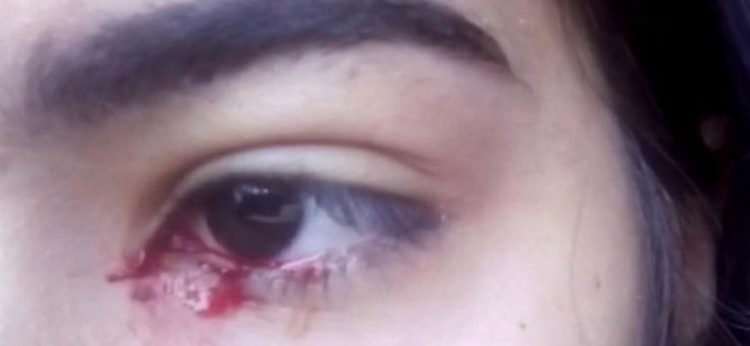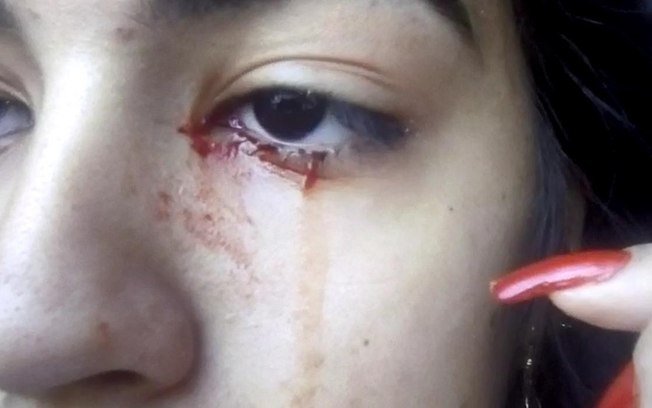A 15-year-old Brazilian girl has baffled doctors after allegedly crying blood from her eyes for over a week, for reasons that doctors cannot understand.
The girl, identified only Doris, started feeling sick on September 12, and her mother took her to a hospital in her home city of Sao Paolo. She complained of pain in her abdomen and doctors diagnosed her with kidney stones. She was given medication for the pain and was sent home shortly after. However, on Sunday morning she was again rushed to the emergency room with blood coming out of one eye. Doctors examined Doris, but couldn’t determine the cause of the blood tears, and since she reported no pain or discomfort, she was once again sent home.
“My daughter did countless tests, but they couldn’t find any problems. The doctors released her and we returned home at dawn on Monday,” the girl’s mother, Juliana Teixeira de Miranda, said. “We are going to do whatever the professionals ask, we want to find out what’s really going on.”
Juliana claims that hours after returning from the hospital, blood started flowing from both the girl’s eyes, worrying the family even more. Once again, she was taken to the hospital, but no one had any answers about her condition.
“She underwent a tomography and several other tests, but the doctors found nothing that could justify the blood tears. As there are no answers, the doctors asked her to do some more tests this week to try to find the cause,” Doris’ mother said.
 Doris says that she has been experiencing blood tears ever since September 13, and that the bizarre symptom can appear at any time during the day. The hospital where she has been examined has issued a statement saying that they need to conduct more tests in order to determine the cause of the unusual tears.
Doris says that she has been experiencing blood tears ever since September 13, and that the bizarre symptom can appear at any time during the day. The hospital where she has been examined has issued a statement saying that they need to conduct more tests in order to determine the cause of the unusual tears.
“The presence of blood in the tear is called hemolacria, a condition already described in medical literature. Treatment depends on the cause, but sometimes it disappears as suddenly as it appeared, without treatment and without a conclusive diagnosis”, ophthalmologist Rafael Antonio Barbosa Delsin told UOL.
“Most of the time it is a problem in the patient’s body,” doctor Leandro Fonseca added. “Although it causes a certain amazement, they are not complicated cases to treat. Depending on the cause, it can be treated with antibiotics and hormonal remedies. This situation rarely causes other health problems for the patient.”




